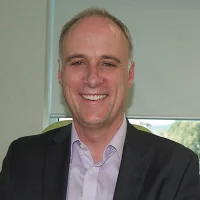Articles / Clinical Conversations: Acute Stroke Treatments and Secondary Stroke Prevention | Part Two


writer
Neurologist; Head, Neurology and Stroke, Royal Melbourne Hospital; Professor of Neurology, Department of Medicine, Royal Melbourne Hospital
This is part two of this series. Read Part 1 >>
Practice points
• If you get a focal deficit that is sudden onset (the average duration is about ten minutes,), the patient needs exactly the same workup as a stroke.
• Look at the carotid arteries, look for atrial fibrillation, start anti-platelet therapy really quickly. Brain imaging is very worthwhile, such as a CT scan to exclude a bleed; an MRI should be normal in a TIA.
• GPs need to ensure patients have adequate and appropriate secondary stroke prevention therapy.
• Look hard for atrial fibrillation, as anti-platelet therapies will not prevent stroke recurrence if the emboli are atrial in origin. It is definitely worth feeling the pulse every time you see the patient as a single Holter monitor has pretty low sensitivity.
• If you have a patient who’s had a normal Holter monitor, but you are suspicious that they really have had an embolic event, you can certainly take advice from your local stroke team.
• Dual anti-platelet therapy (aspirin and clopidogrel) is used for ischaemic stroke/TIA for three weeks and then clopidogrel is continued.
• The evidence is that we need to reduce the LDL to a target of less than 1.8 mmol/L.
• Reduce the blood pressure as low as you can get it without making the patient feel horrible, certainly a systolic consistently less than 140 mmHg.
Based on this educational activity, complete these learning modules to gain additional CPD.

Alcohol Addiction Assessment and Advice

Premature Ovarian Insufficiency – The New Guidelines

Paediatric Allergic Rhinitis & Immunotherapy

Inhaler Devices

writer
Neurologist; Head, Neurology and Stroke, Royal Melbourne Hospital; Professor of Neurology, Department of Medicine, Royal Melbourne Hospital

Increase
No change
Decrease
Listen to expert interviews.
Click to open in a new tab
Browse the latest articles from Healthed.
Once you confirm you’ve read this article you can complete a Patient Case Review to earn 0.5 hours CPD in the Reviewing Performance (RP) category.
Select ‘Confirm & learn‘ when you have read this article in its entirety and you will be taken to begin your Patient Case Review.
Webcast TONIGHT
POTS – What You Need to Know